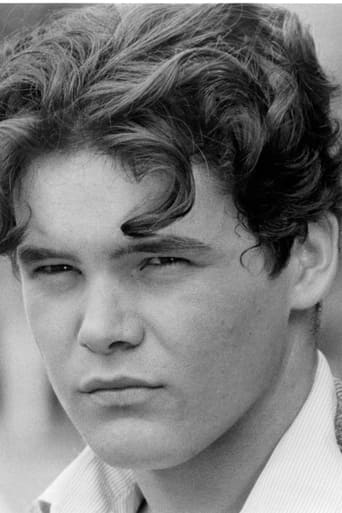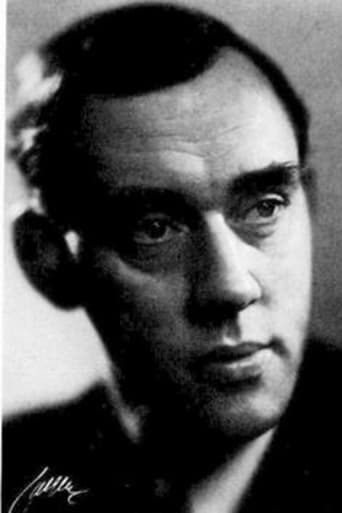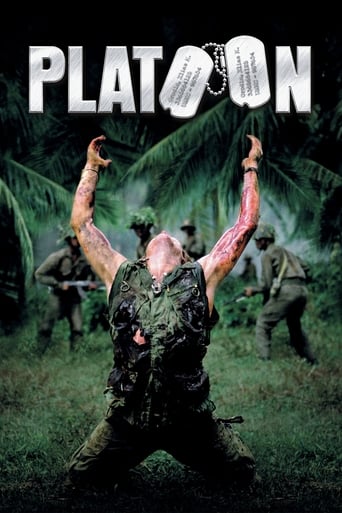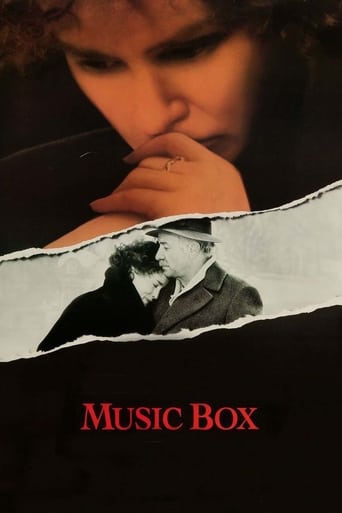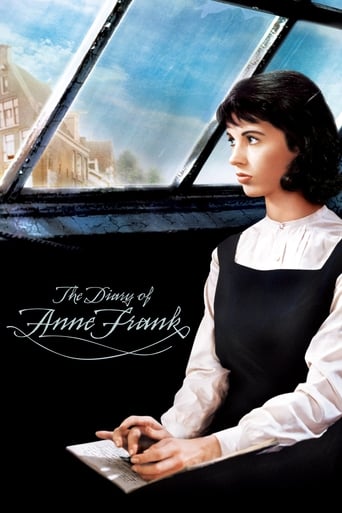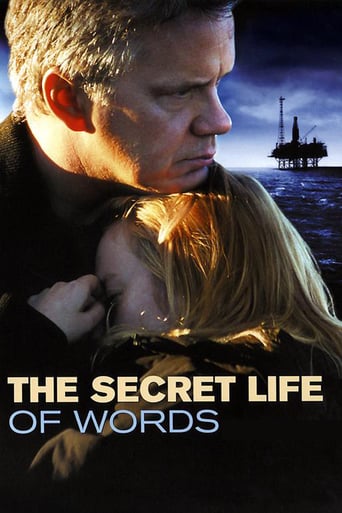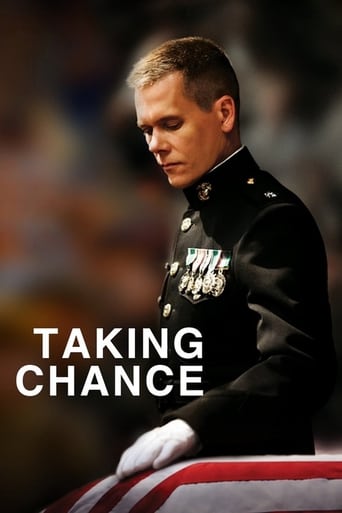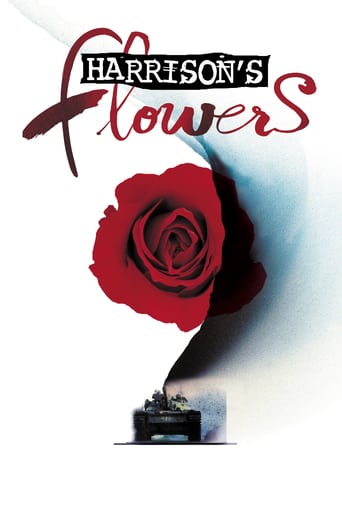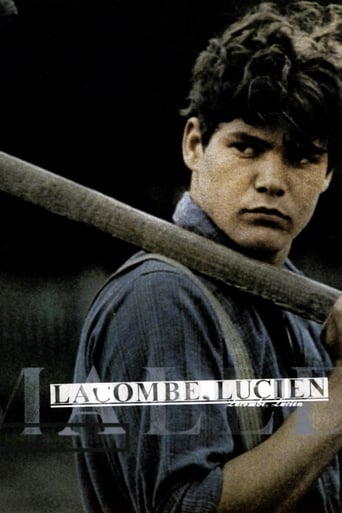
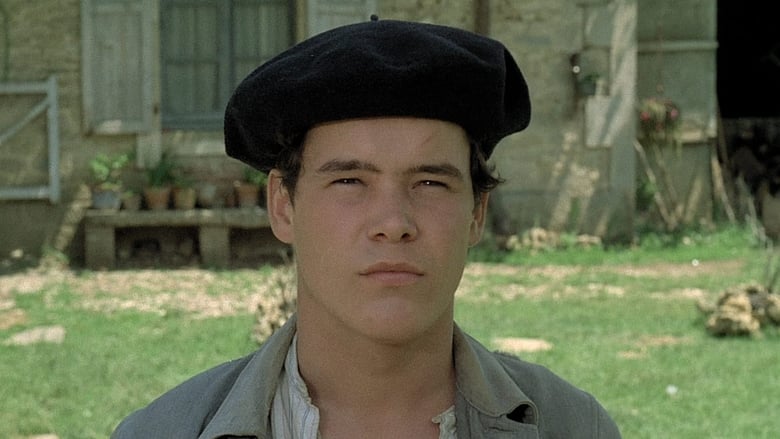
Lacombe, Lucien (1974)
In Louis Malle's lauded drama, Lucien Lacombe is a young man living in rural France during World War II who seeks to join the French Resistance. When he is rejected due to his youth, the resentful Lucien allies himself with the Nazis and joins the Gallic arm of their Gestapo. Lucien grows to enjoy the power that comes with his position, but his life is complicated when he falls for France Horn, a beautiful young Jewish woman.
Watch Trailer
Cast


Similar titles
Reviews
Louis Malle's film about the German occupation of France is based on his own experiences during that time, when he was a teenager (Malle was born in 1932) The young man is Lucien Lacombe, and he is 17 in 1944, when the German war machine has started to fall apart. He lives in occupied France, and as we get to know him, we realize he's a moral cipher with no point of view at all toward the momentous events surrounding him. He's not stupid, but his interest in the war is limited mostly to the daily ways it affects him directly.It affects him at home, where his mother lives with her lover (his father is missing in action). It affects him at work, where he labors in his boring job at the hospital. A lot of the young men in the town are members of the underground resistance movement. They carry guns, are involved in secret schemes and don't have to mop floors. Lucien approaches the local resistance and asks to join, but he's turned away because he's too young. He wants desperately (if "desperately" isn't too strong a word for such a taciturn character) to break the mold of his life, and since the resistance won't have him, he joins the local Gestapo. This is crazy, we're thinking. Lucien joins the Gestapo almost absentmindedly, and then this bright Jewish girl falls for a guy like that. But Louis Malle's point is a complex one. Neither of these people can quite see beyond their immediate circumstances. They're young, uninformed, naive, and the fact is that adolescent sex appeal is a great deal more meaningful to them than all the considerations of history.Louis Malle, whose previous film was the bittersweet and lovely "Murmur of the Heart" (1971), gave himself a difficult assignment this time. His film isn't really about French collaborators, but about a particular kind of human being, one capable of killing and hurting, one incapable of knowing or caring about his real motives, one who would be a prime catch for basic training and might make a good soldier and not ask questions.As played by Pierre Blaise, a young forester who had never acted before (and who died in a road crash a few years later), Lucien is a victim trapped in his own provincialism and lack of curiosity. Louis Malle seems almost to be examining the mentality of someone like the war criminals at My Lai -- technicians of murder who hardly seemed to be troubled by their actions. That's the achievement of "Lacombe, Lucien." But what Louis Malle is never quite able to do is to make us care about Lucien, who is so morally illiterate that his choices, even the good ones, seem randomly programmed. Perhaps to show that illiteracy is the point of the film.
During the WWII, a French countryside boy, Lucien Lacombe, insouciantly gets involved and recruited by the local Gestapo, after procuring the fast-gained high-handed social position and war trophies, his life has descended into a limbo when he is enamored with a Jewish girl. Louis Malle's Oscar-nominated WII feature clings on a well-balanced pace, concocts a carefully-conducted ideological wartime mind state from assorted kinds, mainly zooming in on the conflicting counterpoise between French-born Gestapos (there are scarcely any German has been mentioned in the film) and the fretful Jews in French. Also the resistance power as the third party has never been really put a sizable weight in the narrative line (not as in Jean-Pierre Melville's ARMY OF SHADOWS, 1969, 9/10). The metaphor of the overpowering horror at then is constantly and insistently being dispersed by a motley slaying of various animals, killing birds, dead horse, hunting rabbits, catching a domestic hen and snapping its neck, even a dying dalmatian in the ominously poised supporting-characters-go-to-hell slaughter. All the shots emit a kind of unsettling cinematic impact on the viewers (animal lovers particularly), the message has been unmistakably transmitted, but still not recommendable. First-timer and amateurish leading actor Pierre Blaise (who would unfortunately die in a car accident one year later) bears a tremendous balance of ennui and restlessness, an archetype of the rebellion youth, without any stage-fright to give away his newbie tag, his taciturn image can last for ever. Another great performance is from Holger Löwenadler, the Jewish father-in-law figure for Lucien, whose dignified integrity has to miserably yield to a adrenalin-driven adolescent's advance on his daughter, an exemplified cautionary tale of the misappropriation of weaponry and power. The daughter, Lucien's love interest, played by Aurore Clément, is a more opportunist symbol, oscillating between subservient lover and vengeful daughter. Among a handful of supporting roles, most of which are abruptly dissipating in the second half when the love-pursuit dominates the film, it could have been a potpourri of bountiful individual explorations, but Malle didn't opt for that way. The bleak shots of the ghost town after curfew is an indelible testimony of the dreadful terror of the life during wartime, Malle's film outlandishly culminates in a 15 minutes bucolic spree with Lucien, the daughter and her grandmother (an almost wordless Therese Giehse, but exudes great force of hatred even for a dazed glance), living in his countryside house (bombed and deserted now), rendering the film its most telling salve to the young lost souls, one may get a belated palpitation towards our young protagonist out of detachment which for me is the pre-eminent sense through its 138 minutes running time.
Louis Malle earned three Oscar nominations during his career and Lacombe Lucien was a nominee for the Best Foreign Language film. But somehow Malle and his films have remained quite unknown. The destruction of innocence and the influence of war on youth were common themes for him; alongside with Goodbye, Children (1983), Lacombe Lucien is to my mind one of his finest films and one of the finest anti-war films made; but there's much more to it than just that.In 1944 during WWII an 18-year-old Lucien Lacombe wishes to join the resistance in France. After getting turned down he starts working for the German police. He enjoys his small does of power and authority but things start to get complicated when he gets infatuated by a girl, who is a daughter of a Jewish tailor. After a series of misfortunes Lucien tries to save the girl by escaping to the countryside. When Americans come to France they sentence Lucien to death for working for the Nazis.Louis Malle often tested the audiences he pushed the limitations of cinematic expression. The Lovers (1958) was a description of a woman bored with her bourgeois life and it quite courageously showed sexuality on screen, which got the film banned in many countries and for instance; an American distributor called it pornography and denied to distribute it. Murmur of the Heart (1971) was a bold film about sexual awakening which portrayed an incest relationship between a mother and her teenage son. Lacombe Lucien was also a brave film with regards to WWII and Nazis, who are often seen as soulless monsters in films. Discussing about the controversy of the trial of Nurnberg was quite a taboo in 1970's - and still is; Nazis committed a crime against humanity, but the Allies weren't saints either but Germans remained the only ones culpable. It's quite hard to have sympathy for Nazis and Louis Malle doesn't ask for it, but what he does is show the flip side of the truth: portraying a youngster who doesn't know on whose side he actually is and in the end gets sentenced to death.The film is also a film of strong contrasts: it starts with a sequence in the countryside, beautiful landscapes and sounds of locusts - a place where Lucien is at his most juvenile. Then we're thrown to the city, narrow alleys and gray buildings where Lucien works for the German police and tries hardly to be at his most mature. The countryside represents peace, adolescence and innocence on the contrary the city represents war and adulthood. In the countryside the violence is towards animals and in the city it is towards Jews. In the end when we are taken back to the countryside the viewer is given the last clue about Lucien's naivety and ignorance when he plays around with the girl.Lacombe Lucien is also a portrayal of the destruction of innocence and how war influences youth; people who are still searching themselves and have no idea about life - they're easy to exploit. It's a film about the evil in us all, it's a growth story. The severe aesthetics and the subtle narrative worked very well and Louis Malle's decision of giving sympathy for Lucien in the end fascinated film. A brilliant film against war, everything that takes innocence away from the youth, a story about the influence war has on us and how power and naivety should never be mixed.
Fantastic WWII movie about occupation-era France. Lucien Lacombe (Pierre Blaise) is a hulking teenage farmboy nobody. When he hears about the resistance, he tries to join up with it but is rejected by the school teacher who does the recruiting. A short while later, he inadvertently gives up the teacher to a group of Frenchmen working with the Nazis. He's slightly upset at his mistake, but when he is welcomed by these collaborators, he thinks he's found a place to fit in. Plus, as one of the few French people who is pretty much free to do whatever he likes, he begins to throw his weight around. This mostly takes the form of a "friendship" he forms with his tailor, a half-Jewish foreigner over whom he has absolute power. He intimidates the man (wonderfully played by Holger Löwenadler) and openly (and threateningly) hits on his daughter (Aurore Clément). Malle's film is best when it just observes the characters interacting. It's very slow moving, but the power struggle between the characters is fascinating. It is a film where you're pretty much always going to despise the protagonist, but one can also sense the humanity in him.


